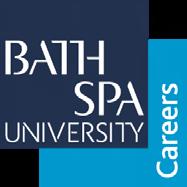Guide to... Teaching in FE and HE



This guide provides an overview of common entry routes into teaching in the Further Education (FE) and Higher Education (HE) sectors.





This guide provides an overview of common entry routes into teaching in the Further Education (FE) and Higher Education (HE) sectors.

Further Education (FE) lecturers teach students, over the age of 16, a wide range of vocational and academic subjects. Types of FE subjects include:
• Vocational training (including apprenticeships, BTECs and T Levels)
• Academic teaching (including GCSEs and A Levels)
• Functional skills (including numeracy, literacy and ESOL –English for Speakers of Other Languages)
There is no specific entry path into FE teaching, meaning individual employers can set their own selection criteria. However, depending on the subject you wish to teach, employers may look for candidates with:
• Knowledge of their subject
• Industry experience of their subject
• Qualifications related to their subject
The FE sector can also be referred to as the Post-compulsory Education and Training (PCET) or the Life-long Learning Sector. Further education settings include colleges, adult learning centres, prisons, youth offending organisations, and charity organisations.
QTLS is a post-qualification voluntary ‘status’ involving continuous professional development and stands for ‘ Teacher Learning and Skills’. It is a professional status for FE education and training, helping practitioners advance their careers and demonstrate their expertise. You must hold a recognised teaching qualification at Level 5 or above and meet a range of eligibility criteria (see QTLS eligibility
It is not a requirement to have a degree to teach in Further Education settings, although having one is likely to improve your job prospects, especially if you wish to teach academic subjects. There is also no current government requirement to hold a teaching qualification to teach in FE but having a teaching qualification or showing willingness to gain one is advisable.
Although there is no legal requirement to have a teaching qualification, most FE providers will expect candidates to already hold a teaching qualification or be willing to gain one as part of a job offer with employer funded on-the-job training. FE teaching qualifications are not linked to the subject you want to teach but aim to support you how to teach effectively. There is more than one type of FE qualification. For up-to-date information on routes, go to FE Advice and Direct Gov Teach in Further Education webpages. Routes include:
LEVEL 7 POSTGRADUATE CERTIFICATE IN EDUCATION (PGCE) FOR FURTHER EDUCATION
This is a level 7 professional teaching qualification for graduates. Courses meet the content requirements and address the Professional Standards for Teachers and Trainers set out by the Education and Training Foundation. The qualification includes at least 100 hours teaching practice with additional practical-based assignments.
Courses may be offered one year full-time or two years part-time and are delivered by universities. Some course providers may use different titles for their qualifications, for example, PGCE in Post Compulsory Education and Training (PCET), or may use the phrases “life-long learning” or “further education” when marketing their courses.
LEVEL 6 PROFESSIONAL GRADUATE CERTIFICATE IN EDUCATION (PROFGRADCERTED)
This is a level 6 professional teaching qualification for graduates. Courses embed the Professional Standards for Teachers and Trainers. The qualification includes a minimum number of hours teaching practice (typically 100 hours) with additional practicalbased assignments.
Courses can be offered one year full-time or two years part-time and are delivered by universities or FE colleges with an associated university awarding body. As well as degree entry requirements, candidates will need to demonstrate they possess GCSEs (or equivalent qualifications) in English and maths.
LEVEL 5 DIPLOMA IN EDUCATION AND TRAINING (DET)
This is a recognised teaching qualification for the sector that includes a minimum number of 50 hours of teaching practice. Courses are offered one year full-time or two years part-time and are delivered in FE colleges and training organizations. There is no requirement to have a degree, but providers may look for candidates with subject specific qualifications. There may also be an option to take this qualification with a specialist pathway, for example, if you are interested in teaching literacy, numeracy or ESOL in the further education sector.
Most students undertaking this route are already employed in a teaching role, as access to teaching practice in a FE setting is often a requirement of the course.
For those interested in exploring FE teaching, the qualification framework also includes a Level 3 Award in Education and Training, and a Level 4 Certificate in Education and Training. These are introductory qualifications, but there is no requirement to complete these levels prior to completing the Level 5 Diploma in Education and Training. For further information see FE Advice
LEVEL 5 LEARNING AND SKILLS TEACHER APPRENTICESHIPS
An apprenticeship route combines work with study to gain a professional teaching qualification at level 5. This route is likely to be an option if you secure a job offer with an FE employer without already holding a teaching qualification, as employers may fund your on-the-job training.
The qualification takes approximately 18 months to complete and are typically delivered by training providers.
Lecturers in further education who hold QTLS status and are members of the Society for Education & Training (SET) be eligible to work as a qualified teacher in a state-maintained school in England. See the SET Registering & Applying for QTLS advice
There is no central admissions service for all types of training courses to teach in the FE sector, but you can contact Advice about searching for training courses. For PGCE for FE courses, some university providers will advertise on Find Postgraduate Teacher Training Courses university course pages directly to find out how to apply. You can also search for courses using the National Careers Service
For those studying a PGCE equivalent (such as PCET PostCompulsory Education and Training), financial support may be available from Student Finance England in the form of tuition fee and maintenance loans. Go to Direct Gov Teacher Training Funding or contact Student Finance England contact FE Advice or Direct Gov Teach in Further Education may be able to provide up-to-date information about whether government funding is available.
Gaining experience of the FE sector is recommended for those considering further education teaching, as it will enable you to make an informed decision about whether teaching will suit you. You can arrange your own experience or classroom-based observations by contacting further education providers, such as colleges. It is advisable that you contact the department that teaches the subject area you are interested in. While gaining experience, keep a record of what you did, what you learnt and what you observed to help you with reflecting on your experiences in future recruitment processes.
• Prospects Further Education Teacher
• TargetJobs Training to Teach in Further and Higher Education
• Education and Training Foundation
• Society for Education and Training
• Association of Colleges

Higher education teaching professionals work in universities. The role can be varied but can include teaching students at least to degree level, designing and developing course curriculum, administering assessment processes, and advising students on academic matters. Some positions may also include undertaking research, writing journal articles, publishing books in their chosen field, and presenting at academic conferences.
To find out more about the role of Higher Education Lecturer:
• Speak to your lecturing staff about their career path
• Read Prospects Higher Education Lecturer
• Read Jobs.ac.uk HE Lecturer
You will need a good degree in a relevant subject and for many disciplines you may be expected to have a masters and/or PhD. Some masters or PhD courses may also give you the option to undertake some teaching duties (such as running seminars) or you may consider applying for part-time lecturing roles alongside your studies.
Occasionally, however, university lecturing staff will enter the profession from a position of industry experience and/or other relevant professional qualifications. This may be common in vocational subject areas such as Creative Writing, Law, or Design.
Searching job websites will give you an understanding of the type of experience, qualifications and skills universities are looking for when they recruit for academic staff. Go to university vacancy webpages directly or search for academic positions on Jobs.ac.uk
You may be encouraged to undertake university teaching qualifications when starting your first lecturing role. This could include HEA Fellowship with Advance HE, which recognises professional practice of those who teach or support learning in higher education or a professional Certificate in Learning and Teaching in Higher Education (CLTHE) also accredited by Advance HE.
• Jobs.ac.uk Higher Education Career Development Advice
• Vitae Academic Researchers Careers

Bath Spa Careers and Employability is here to help you get a great start to your career. We are open year round, so to find out more about how we can support you go to: www.bathspa.ac.uk/careers
As a student or recent graduate, MyCareer is your online portal for booking events, accessing appointments, submitting queries, and searching for jobs and placements. You can also follow @bathspacareers on social media: Facebook | Twitter | YouTube | LinkedIn | Instagram
Every effort has been made to ensure the information in this resource guide is accurate but we recommend that you check all details carefully.
The University is committed to the promotion of equality and diversity. If you require this publication in an alternative format, please go to MyCareer to submit a request via ‘Questions’. Published September 2022 Copyright Bath Spa University Careers





